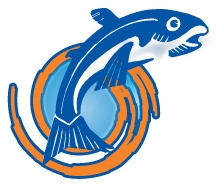The second time sitting the FSWE was, for me, markedly different. The initial apprehension and uncertainty was gone, as I knew what to expect this time around. Procedurally, there were very few changes this year, most notably the admonition not to have water bottles present during the exam. We had the same proctor last year as this year, so I can't attribute it to site differences. The other significant change was in the time notification. This year the instructions announced that we were to be informed when fifteen and five minutes remained. Last year, the only warning was to be at five minutes, but she had unilaterally decided to also remind us at fifteen, which was greatly appreciated. I can't pretend that ACT altered their procedure based on my post last year, but I did find it a very welcome change. (Thank you BEX/ACT if you read this!)
The JK section came first, and the cone-specific segments were much more relevant than last year. It was during this phase that I had the oddest feeling, almost as if ACT had asked me what questions needed to be on the exam. I finished early (CON), and browsed through the other four sections. I might have been able to muddle through the ECON, and perhaps the POL, but the ADMIN and PD sections were unbelieveable. Hats off to those of you who braved those waters!
The second section was the Essay (as opposed to previously being last). I did not like any of the three prompts, and had to read through them two or three times before I felt confident enough to tackle one of them. I remembered my title, and also doublespaced this time (both good things), which essentially filled the booklet. I was pleased with the result, although I felt the structure to be a little odd. Instead of saying "A is true because of X, Y, & Z", it felt as though I had said "A can be true if X causes Y, then Z". But I did feel that I had addressed the issue and supported it well; however, we'll see soon enough if those Iowans agree. ;)
The BIO flowed smoothly. During the past year I found myself involved in a large number of situations that I felt might adequately qualify as 'bio material'; then again, my experience last year probably just helped attune me to what was required. Overall, I was quite comfortable with this section.
The EE felt as though it had been reinvented. Last year it seemed like I was reading a series of encyclopedic type articles and reports; this year it felt like there was a clear and decided focus on International issues, the State Department and/or Foreign Service, which made it feel decidedly more relevant. The use of abbreviations, and SD jargon, speechwriting, etc. was a nice touch. One could do fine if they knew nothing about the State Department, but a familiarity with it would certainly benefit.
Overall, I found my second experience to be much more relaxing and enjoyable than the first. During the intervening 24-48 hours, my confidence has waned somewhat, primarily due to my obsession with the handful I wasn't sure about (and guessed wrongly). But I'm ignoring the ones that I didn't have to ponder, which more than tip the balance back in my favor (barring careless mistakes), so I remain pleased with my performance.
Stats: there were 38 people registered to take it at our venue, and only 16 showed up. Out of the ten I spoke with afterwards, only a few had taken it before, and only two had joined the Yahoo Groups at one time or another. (ZAC - you need to proselytize harder!) There were three CON, two POL, two PD, two MGMT, and one ECON; a nice showing across all cones.
So how'd you do?
